
Rio Vermelho: Salvador's Vibrant Heartbeat
Rio Vermelho, located in Salvador, Brazil, is a dynamic neighborhood that perfectly blends cultural heritage and modern vibrancy. Known for its lively atmosphere, Rio Vermelho is a haven for tourists seeking to experience the true essence of Brazilian culture. The area is dotted with historical landmarks, colorful street art, and a plethora of restaurants and bars that serve up delicious Bahian cuisine. As you stroll through the cobblestone streets, you'll encounter a mix of old and new, from colonial architecture to contemporary art galleries. The neighborhood's coastline offers stunning views of the Atlantic Ocean, perfect for a leisurely walk or a relaxing day at the beach. Don't miss the iconic Casa de Iemanjá, a small blue-and-white shrine dedicated to the sea goddess, which is a focal point of local religious celebrations. Nightlife in Rio Vermelho is nothing short of electric. The neighborhood comes alive with music, dance, and laughter. From samba clubs to cozy cafes, there's something for everyone. Be sure to try acarajé, a local street food made from black-eyed peas and shrimp, which is a must-taste delicacy. Whether you're a history buff, a foodie, or a night owl, Rio Vermelho offers a rich and diverse experience that will leave you enchanted.
Local tips in Rio Vermelho
- Visit Casa de Iemanjá early in the day to avoid crowds.
- Try acarajé from a street vendor for an authentic taste of local cuisine.
- Wear comfortable shoes for walking on cobblestone streets.
- Explore the nightlife; many bars and clubs offer live music.
Rio Vermelho: Salvador's Vibrant Heartbeat
Rio Vermelho, located in Salvador, Brazil, is a dynamic neighborhood that perfectly blends cultural heritage and modern vibrancy. Known for its lively atmosphere, Rio Vermelho is a haven for tourists seeking to experience the true essence of Brazilian culture. The area is dotted with historical landmarks, colorful street art, and a plethora of restaurants and bars that serve up delicious Bahian cuisine. As you stroll through the cobblestone streets, you'll encounter a mix of old and new, from colonial architecture to contemporary art galleries. The neighborhood's coastline offers stunning views of the Atlantic Ocean, perfect for a leisurely walk or a relaxing day at the beach. Don't miss the iconic Casa de Iemanjá, a small blue-and-white shrine dedicated to the sea goddess, which is a focal point of local religious celebrations. Nightlife in Rio Vermelho is nothing short of electric. The neighborhood comes alive with music, dance, and laughter. From samba clubs to cozy cafes, there's something for everyone. Be sure to try acarajé, a local street food made from black-eyed peas and shrimp, which is a must-taste delicacy. Whether you're a history buff, a foodie, or a night owl, Rio Vermelho offers a rich and diverse experience that will leave you enchanted.
Iconic landmarks you can’t miss
Morro do Cristo
Discover panoramic views and cultural richness at Morro do Cristo, a must-see landmark in Salvador's vibrant Barra neighborhood.
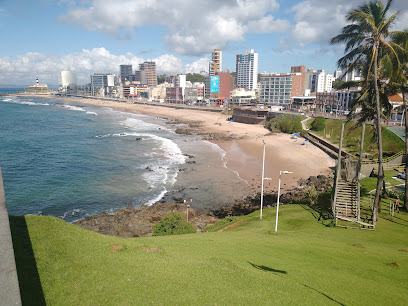
a Casa do Rio Vermelho
Step into the world of Jorge Amado and Zélia Gattai at their former home, a vibrant cultural center in Salvador's bohemian Rio Vermelho neighborhood.
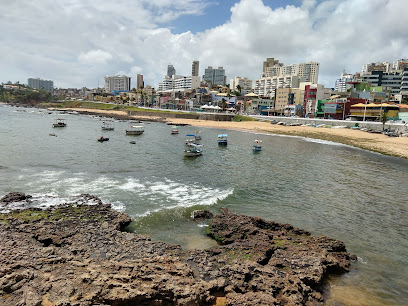
Praia do Buracão
Discover Praia do Buracão: Salvador's hidden beach with golden sands, vibrant culture, and stunning sunsets in the heart of Rio Vermelho.
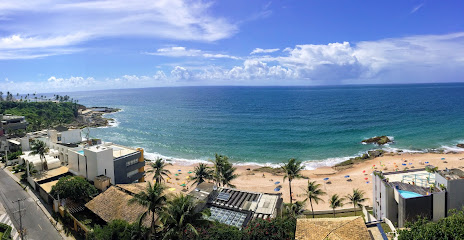
Square Largo da Mariquita
Experience Salvador's vibrant culture at Largo da Mariquita: a lively square with seaside views, music, food, and artisan crafts in Rio Vermelho.
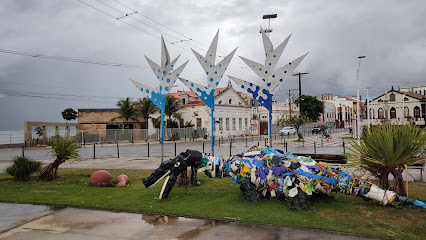
Rio Branco Palace
Explore Brazil's past at the Rio Branco Palace in Salvador, Bahia, a historic landmark with stunning views and rich cultural exhibits.
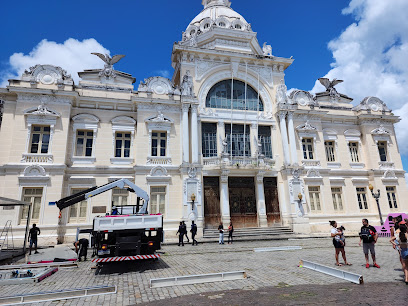
Praia do Rio Vermelho
Experience the bohemian vibe of Salvador at Praia do Rio Vermelho, a beach known for its lively nightlife, cultural events, and stunning sunsets.
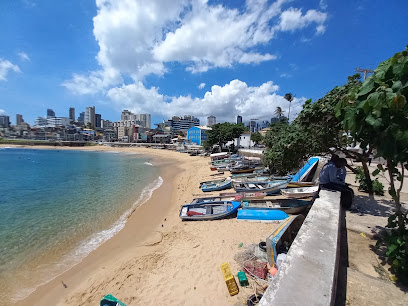
Jorge Amado e Zelia Gattai
A tribute to Brazilian literary icons Jorge Amado and Zélia Gattai, capturing the spirit of Bahia in the heart of Rio Vermelho, Salvador.
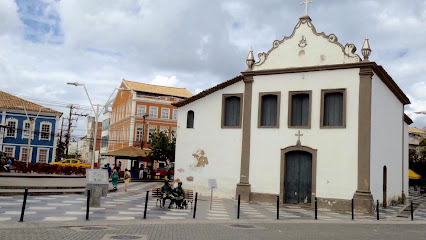
Rio Vermelho BA museu Jorge amado
Step into the world of Jorge Amado and Zélia Gattai at their former home, a vibrant cultural center in Salvador's Rio Vermelho neighborhood.
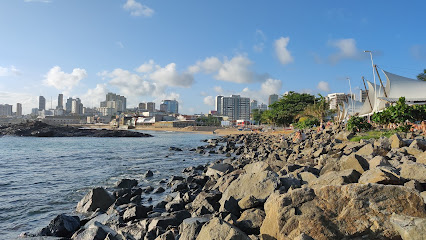
The Mermaid of Rio Vermelho
Discover the enchanting Mermaid of Rio Vermelho in Salvador, a symbol of Bahian art, folklore, and coastal beauty in a vibrant neighborhood.
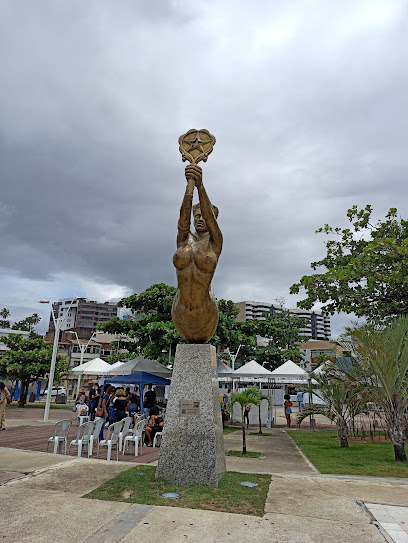
Mirante Ubaldo Marques Filho
Enjoy panoramic ocean views from this scenic observation point honoring a local writer in Salvador's vibrant Rio Vermelho neighborhood.
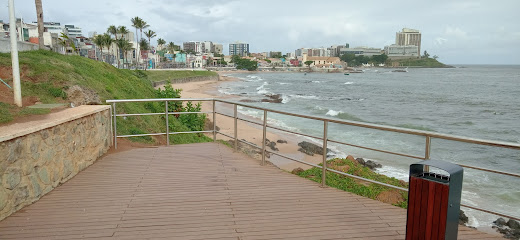
Monumento a Cristóvão Colombo
Discover a piece of Salvador's history at the Monumento a Cristóvão Colombo in the vibrant Rio Vermelho neighborhood.
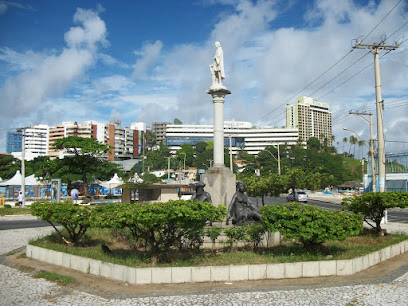
Canto de Yansã
Immerse yourself in Afro-Brazilian culture at Canto de Yansã in Salvador's Rio Vermelho, with music, dance, and traditional cuisine.
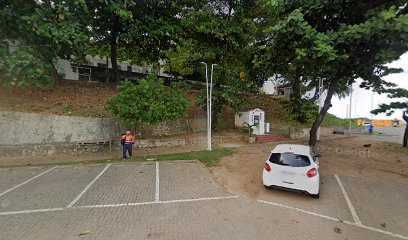
Mirante da Paciência
Discover panoramic ocean views and a tranquil atmosphere at Mirante da Paciência in Salvador's lively Rio Vermelho neighborhood.
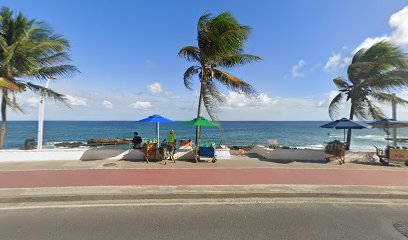
Unmissable attractions to see
Museu Náutico da Bahia - Farol da Barra
Explore Brazil's maritime history at the Museu Náutico da Bahia, housed in a historic fort with stunning ocean views.
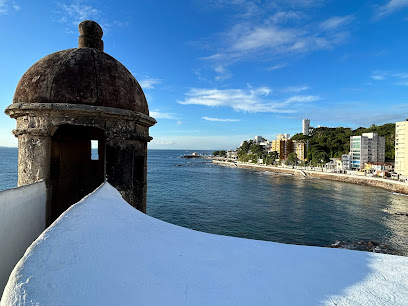
Elevador Lacerda
Ascend to breathtaking views of Salvador from this historic Art Deco elevator, connecting the upper and lower cities since 1873.
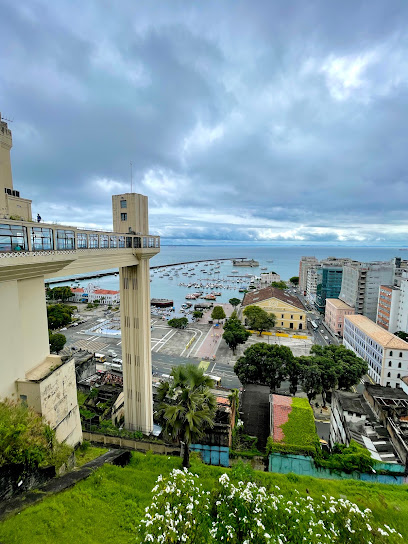
Joventino Silva City Park
Discover Salvador's green heart at Joventino Silva City Park: a vibrant space for leisure, culture, and nature in the heart of Pituba.
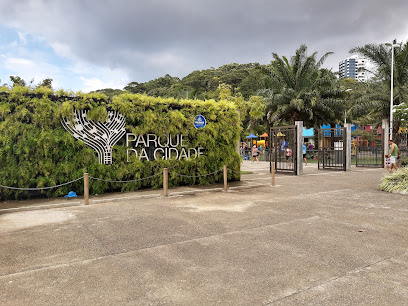
a Casa do Rio Vermelho
Discover the inspiring world of Jorge Amado and Zélia Gattai at their former home, a vibrant cultural memorial in Salvador's Rio Vermelho.
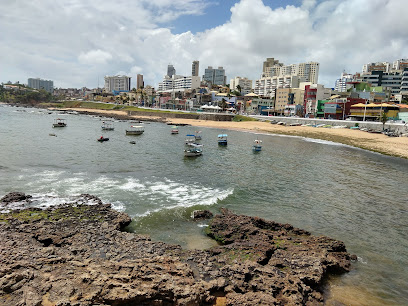
Fallen Cross Monument
A modern monument in Salvador's historic Pelourinho, commemorating a lost cathedral and offering stunning bay views.
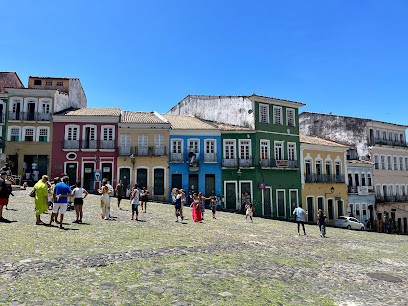
Square Largo da Mariquita
Experience the vibrant culture, cuisine, and coastal charm of Salvador at Largo da Mariquita, a must-see promenade in Rio Vermelho.
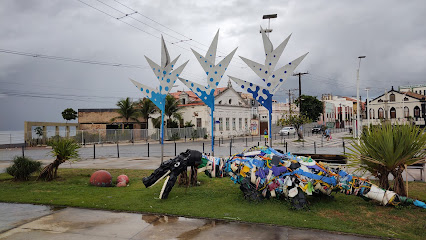
Rio Branco Palace
Explore Brazil's history at the Rio Branco Palace in Salvador, Bahia: a former government seat with stunning views and historical artifacts.
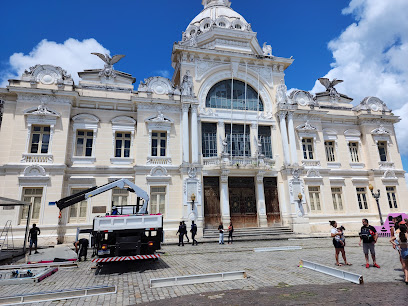
Buraco da Sereia
Discover Salvador's hidden gem: a natural rock pool with breathtaking views of the iconic Barra Lighthouse.
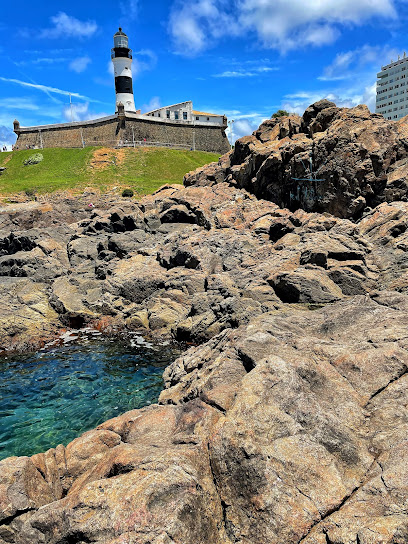
Rio Vermelho BA museu Jorge amado
Explore the former home of Jorge Amado & Zélia Gattai in Salvador. A vibrant museum celebrating their lives, literature, and Bahian culture.
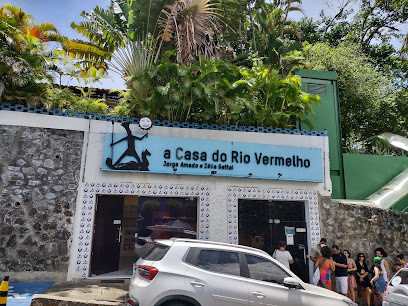
Canto de Yansã
Experience Afro-Brazilian culture at Canto de Yansã in Salvador: music, dance, and traditional cuisine await in Rio Vermelho's heart.
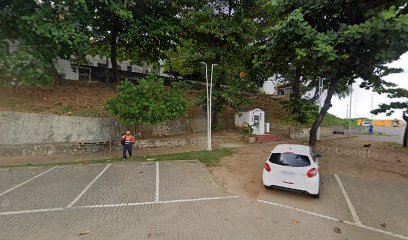
Essential places to dine
Restaurante Casa de Tereza
Discover the essence of Bahian cuisine at Restaurante Casa de Tereza - a seafood lover's paradise in Salvador.
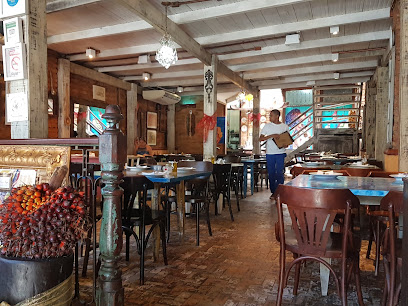
Cien Fuegos Mexicano - Rio Vermelho
Discover vibrant flavors at Cien Fuegos Mexicano in Rio Vermelho - where authentic Mexican cuisine meets lively entertainment.
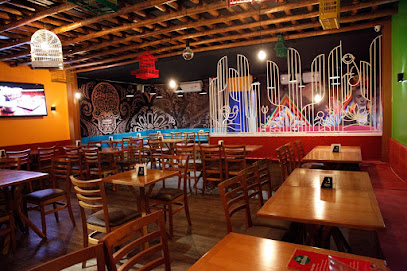
Pasta em Casa | Unidade Rio Vermelho
Discover authentic Italian cuisine at Pasta em Casa in Rio Vermelho - where every dish is crafted with passion and tradition.
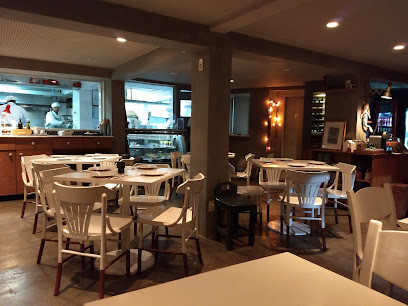
Boteco do França
Discover authentic Brazilian flavors at Boteco do França in Rio Vermelho, where vibrant dishes meet a lively atmosphere.
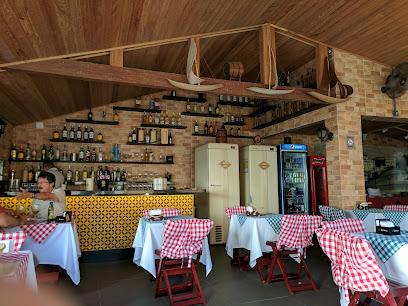
Salvador Dali Restaurante
Experience the fusion of Brazilian and Italian cuisine at Salvador Dali Restaurante in the heart of Rio Vermelho.
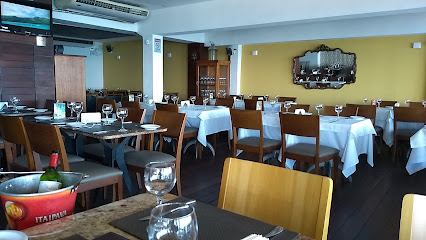
La Taperia
Experience authentic Spanish tapas at La Taperia in Rio Vermelho, Salvador - where every dish tells a story.
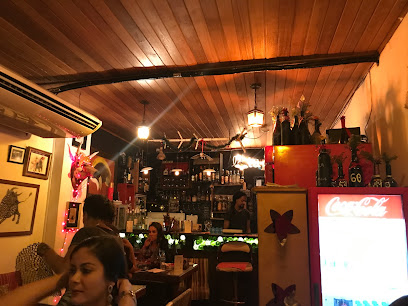
Dona Mariquita - Cozinha Patrimonial da Bahia
Discover authentic Bahian cuisine at Dona Mariquita - where tradition meets flavor in Salvador's vibrant Rio Vermelho.
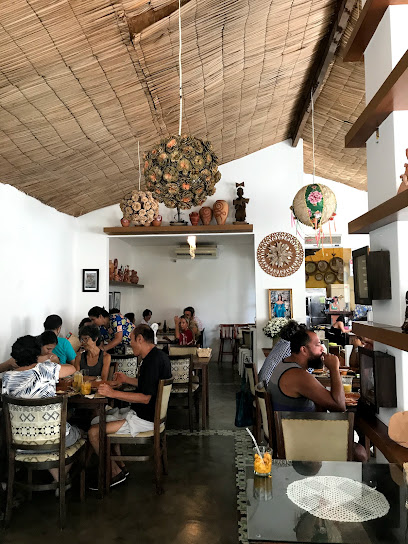
Solar Gastronomia | Rio Vermelho
Experience the essence of Brazilian cuisine at Solar Gastronomia in Rio Vermelho—where tradition meets innovation in every dish.
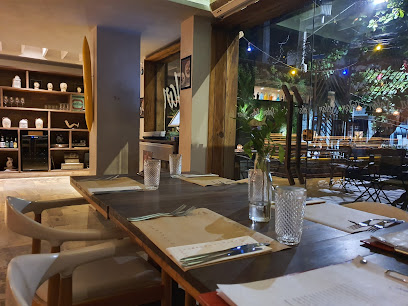
Isola Cucina Italiana
Discover authentic Italian cuisine at Isola Cucina Italiana in Salvador's vibrant Rio Vermelho neighborhood.
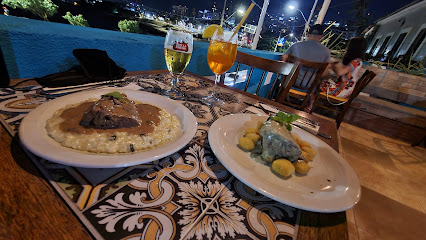
Confraria das Ostras
Experience authentic Bahian seafood at Confraria das Ostras - where fresh oysters meet stunning ocean views in Salvador.
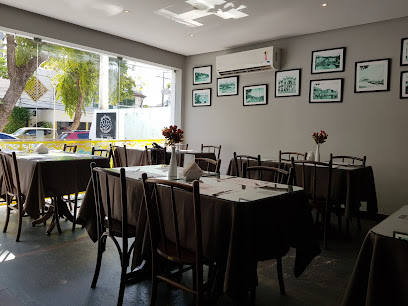
Markets, malls and hidden boutiques
Shopping Rio Vermelho
Explore Shopping Rio Vermelho, Salvador's vibrant mall offering diverse shopping, dining, and entertainment options in a lively atmosphere.
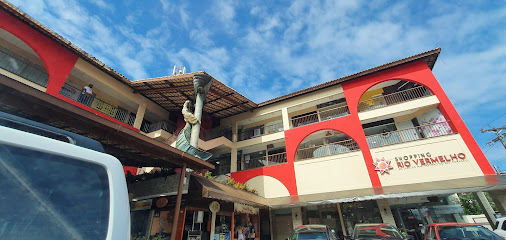
Free Shop
Discover the vibrant shopping experience at Free Shop in Rio Vermelho, Salvador, where local culture meets diverse retail options.
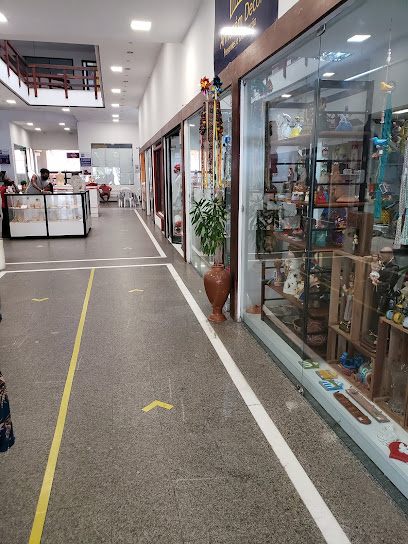
Shopping Yemanja
Explore the vibrant shopping scene at Shopping Yemanja in Rio Vermelho, Salvador, where local culture meets diverse retail therapy.
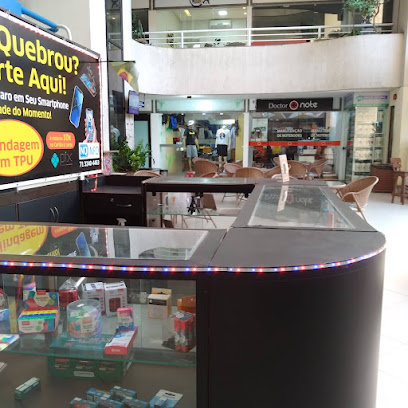
The Finds
Discover unique fashion at The Finds in Rio Vermelho, Salvador - a charming boutique showcasing the best of Brazilian clothing.
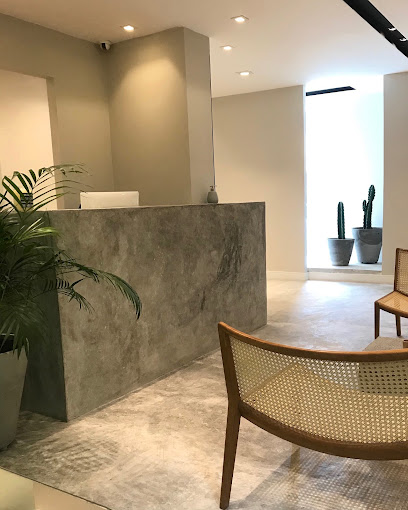
Jade Showroom
Explore unique clothing and accessories at the Jade Showroom in Salvador's vibrant Rio Vermelho district, blending local culture with exquisite fashion.
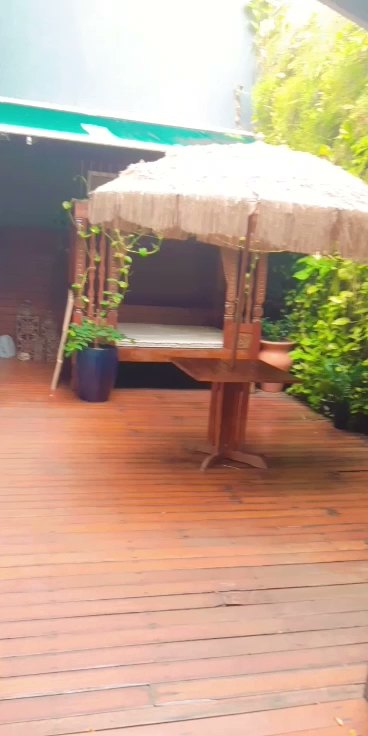
Armazém Decor
Explore Armazém Decor in Rio Vermelho for an authentic selection of Brazilian crafts and unique souvenirs that capture the spirit of Salvador.
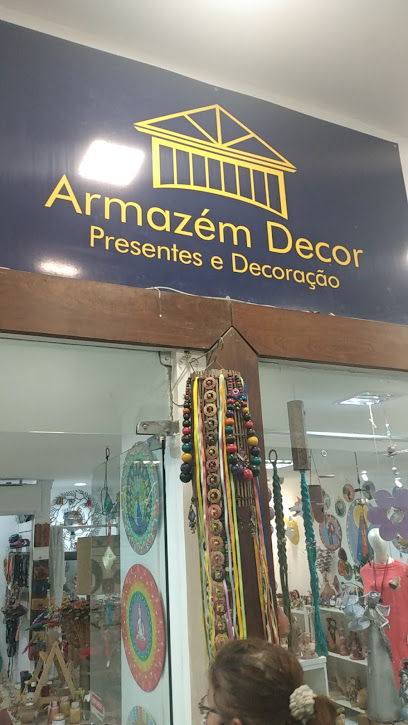
Loja Amêndoa-Produtos Naturais
Discover Loja Amêndoa, a delightful health food store in Salvador, Brazil, offering organic products and a taste of local wellness culture.
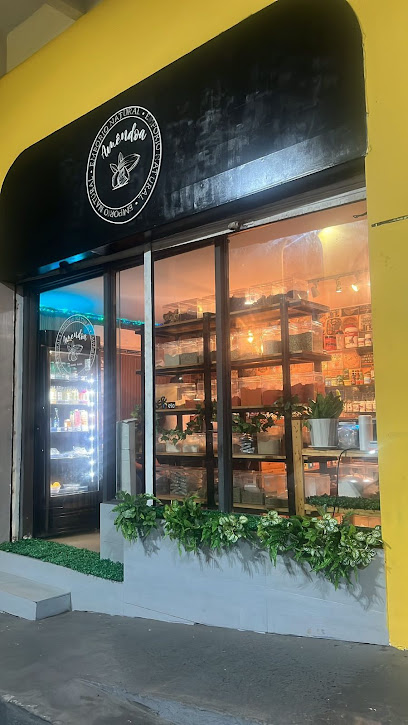
Boutique da Gabriela
Explore the vibrant culture of Salvador at Boutique da Gabriela, where unique local crafts and fashion await every traveler.
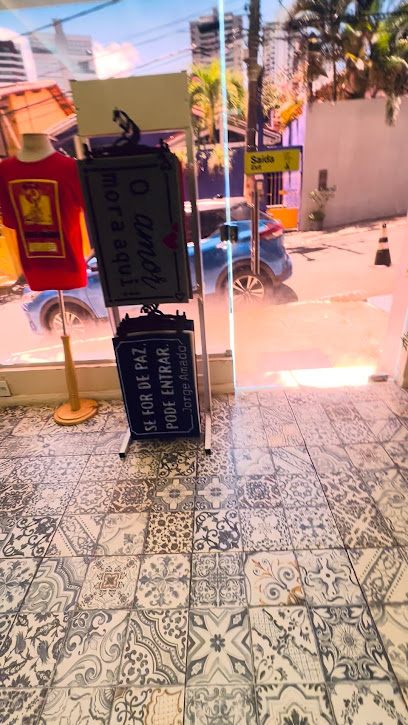
Loja
Explore Loja in Salvador's Rio Vermelho: a vibrant store showcasing local crafts, art, and fashion, reflecting Bahia's rich culture.
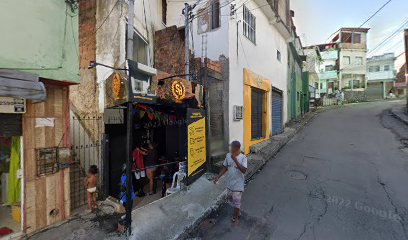
Maroka presentes
Explore the vibrant world of Bahian culture at Maroka Presentes, your go-to novelty store in Rio Vermelho for unique gifts and local crafts.
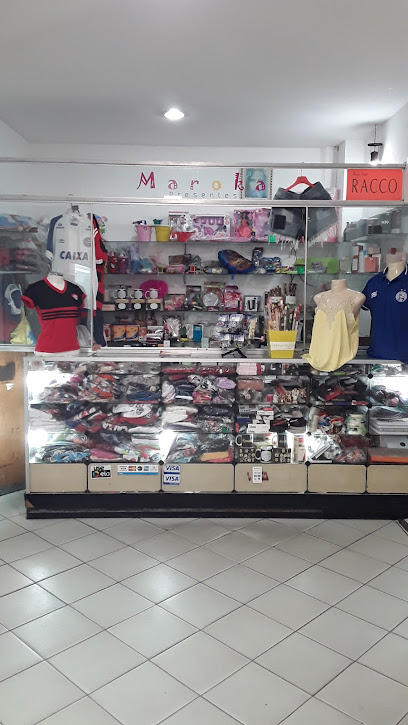
Essential bars & hidden hideouts
Blue Beach Bar
Experience the vibrant flavors of Salvador at Blue Beach Bar, where gastronomy meets stunning ocean views in a tropical paradise.
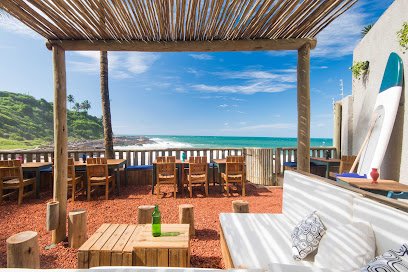
BomBar Rv
Experience the vibrant nightlife of Salvador at BomBar Rv, a live music bar that offers unforgettable performances and a taste of local culture.
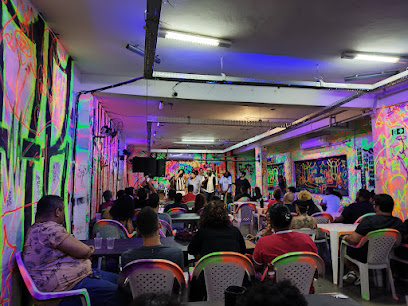
Rio Vermelho Bar
Discover the lively vibe of Rio Vermelho Bar, where local culture meets exquisite drinks in the heart of Salvador's nightlife.
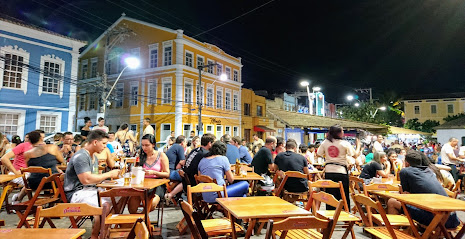
O Mais Amado Boteco
Experience the lively atmosphere of O Mais Amado Boteco, a must-visit pub in Salvador known for its traditional drinks and vibrant nightlife.
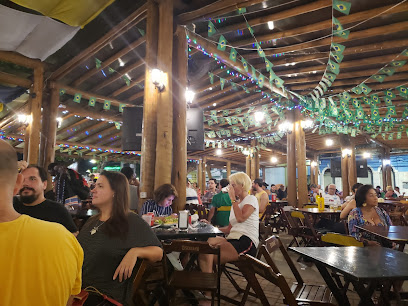
SAN
Discover the pulse of Salvador's nightlife at SAN, a vibrant bar and disco club in the heart of Rio Vermelho, where music and culture come alive.
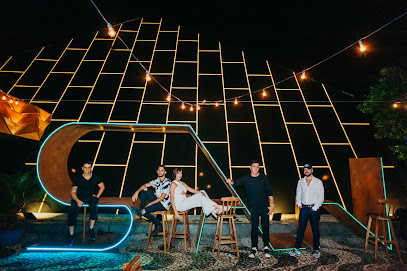
Show Bar
Experience the vibrant nightlife of Salvador at Show Bar, where great food, live music, and an electric atmosphere await.
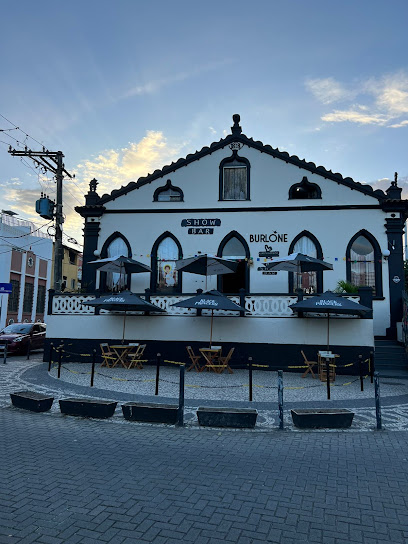
Atoa Lounge & Beer
Experience the vibrant flavors of Brazil at Atoa Lounge & Beer, a premier grill bar in Salvador's lively Rio Vermelho neighborhood.
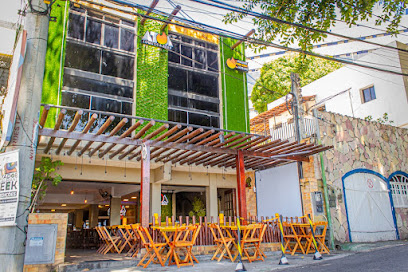
30 Segundos Bar
Discover the lively nightlife of Salvador at 30 Segundos Bar, where exquisite cocktails and delicious cuisine blend in a vibrant atmosphere.
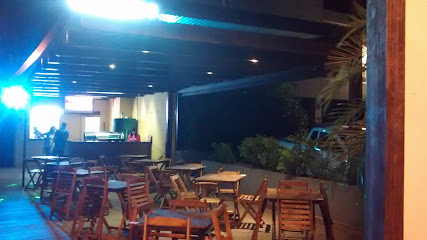
Mercearia Bar
Experience the vibrant flavors of Salvador at Mercearia Bar, where live music meets delicious tapas and expertly crafted cocktails.
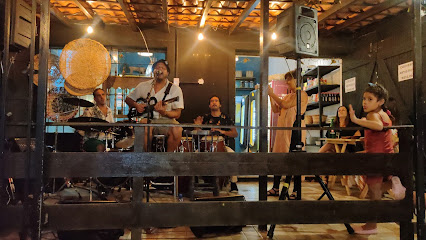
Nine Music Bar
Discover the eclectic rhythms and vibrant atmosphere at Nine Music Bar in Rio Vermelho, Salvador – a nightlife gem for every traveler.
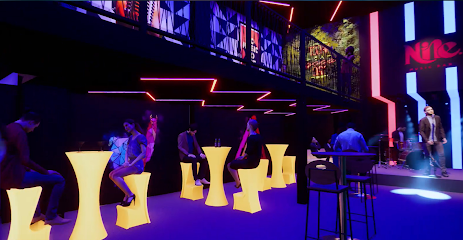
Bar Red River
Experience the vibrant nightlife at Bar Red River, a cocktail bar in Salvador's Rio Vermelho, offering unique drinks and a lively atmosphere.
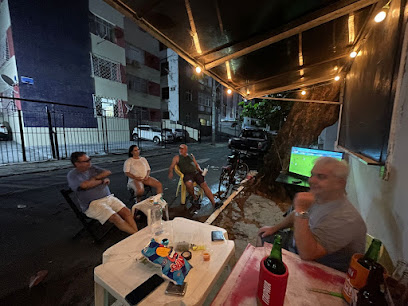
Red River Bar e Restaurante
Experience the vibrant flavors of Bahia at Red River Bar e Restaurante, where local cuisine meets a lively atmosphere in the heart of Salvador.
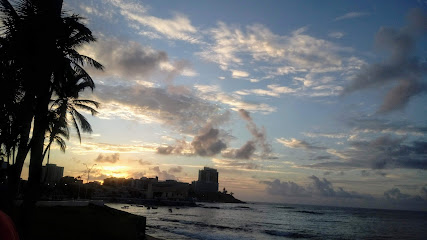
Bar da Rio Vermelho
Explore the lively ambiance of Bar da Rio Vermelho, a cultural gem in Salvador, perfect for enjoying local drinks and nightlife.
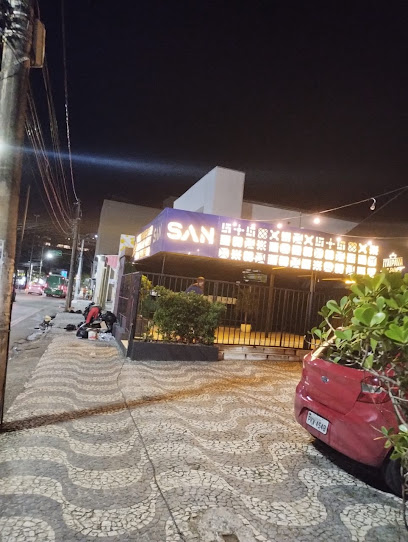
Local Phrases
-
- HelloOi
[oy] - GoodbyeTchau
[chow] - YesSim
[seem] - NoNão
[nah-oo] - Please/You're welcomePor favor/De nada
[por fah-voh/day nah-dah] - Thank youObrigado/Obrigada
[oh-bree-gah-doo/oh-bree-gah-dah] - Excuse me/SorryCom licença/Desculpe
[kohm lee-sen-sah/dehs-kool-peh] - How are you?Como você está?
[koh-moh voh-seh es-tah] - Fine. And you?Bem. E você?
[behn. eh voh-seh] - Do you speak English?Você fala inglês?
[voh-seh fah-lah een-glehz] - I don't understandEu não entendo
[eh-oo nah-oo ehn-tehn-doo]
- HelloOi
-
- I'd like to see the menu, pleaseEu gostaria de ver o cardápio, por favor
[eh-oo goh-stah-ree-ah deh vehr oo kahr-dah-pee-oh, por fah-voh] - I don't eat meatEu não como carne
[eh-oo nah-oo koh-moh kahr-neh] - Cheers!Saúde!
[sah-oo-deh] - I would like to pay, pleaseEu gostaria de pagar, por favor
[eh-oo goh-stah-ree-ah deh pah-gahr, por fah-voh]
- I'd like to see the menu, pleaseEu gostaria de ver o cardápio, por favor
-
- Help!Socorro!
[soh-koh-roh] - Go away!Vá embora!
[vah ehm-boh-rah] - Call the Police!Chame a Polícia!
[shah-meh ah po-lee-see-ah] - Call a doctor!Chame um médico!
[shah-meh oom meh-dee-koh] - I'm lostEstou perdido
[eh-stoh pehr-dee-doo] - I'm illEstou doente
[eh-stoh doo-ehn-chee]
- Help!Socorro!
-
- I'd like to buy...Eu gostaria de comprar...
[eh-oo goh-stah-ree-ah deh kohm-prahr] - I'm just lookingEstou só olhando
[eh-stoh soh oh-lahn-doo] - How much is it?Quanto custa?
[kwahn-too koos-tah] - That's too expensiveIsso é muito caro
[ee-soh eh moo-ee-toh kah-roh] - Can you lower the price?Você pode baixar o preço?
[voh-seh poh-deh bah-ee-shahr oo preh-soh]
- I'd like to buy...Eu gostaria de comprar...
-
- What time is it?Que horas são?
[keh oh-rahz sah-oo] - It's one o'clockÉ uma hora
[eh oo-mah oh-rah] - Half past (10)Dez e meia
[dehz eh may-ah] - MorningManhã
[mahn-yah] - AfternoonTarde
[tahr-deh] - EveningNoite
[noy-chee] - YesterdayOntem
[ohn-tehn] - TodayHoje
[oh-zhee] - TomorrowAmanhã
[ah-mahn-yah] - 1Um
[oom] - 2Dois
[doh-ees] - 3Três
[trehs] - 4Quatro
[kwah-troh] - 5Cinco
[seeng-koh] - 6Seis
[say-ees] - 7Sete
[seh-teh] - 8Oito
[oy-toh] - 9Nove
[noh-veh] - 10Dez
[dehz]
- What time is it?Que horas são?
-
- Where's a/the...?Onde é o/a...?
[ohn-deh eh oh/ah] - What's the address?Qual é o endereço?
[kwahl eh oh ehn-deh-reh-soh] - Can you show me (on the map)?Você pode me mostrar (no mapa)?
[voh-seh poh-deh meh mohs-trahr (noo mah-pah)] - When's the next (bus)?Quando é o próximo (ônibus)?
[kwahn-doo eh oh proh-ksee-moh (ohn-ee-boos)] - A ticket (to ....)Uma passagem (para ....)
[oo-mah pah-sah-jehm (pah-rah)]
- Where's a/the...?Onde é o/a...?
History of Rio Vermelho
-
Rio Vermelho, located on the coast of Salvador, was originally a fishing village known for its picturesque beaches and vibrant cultural life. Its development began in the 16th century, when Salvador was established as the first capital of Brazil. The area attracted settlers and fishermen who were drawn to its natural resources and strategic location.
-
Throughout the 19th century, Rio Vermelho became a hub for Afro-Brazilian culture, particularly with the influence of the African diaspora. The neighborhood is known for its strong ties to Candomblé, an Afro-Brazilian religious tradition that blends African beliefs with Catholicism. This cultural synthesis can be seen in the local architecture, festivals, and communal practices.
-
In the early 20th century, Rio Vermelho gained fame as a center for modern art. Notable figures like painter and writer Jorge Amado, who lived in the neighborhood, contributed to its reputation as a cultural hotspot. The region became home to numerous art studios, galleries, and cultural events, encouraging the growth of the artistic community.
-
Rio Vermelho is famous for its vibrant Carnival celebrations, which feature street parties and music that highlight the region's rich cultural heritage. The annual Festa de Yemanjá, held on February 2nd, celebrates the Afro-Brazilian goddess of the sea, drawing thousands of devotees and tourists who participate in offerings and festivities along the beach.
-
Over the years, Rio Vermelho has evolved into a gastronomic destination, known for its seafood and traditional Bahian cuisine. The neighborhood is dotted with popular restaurants and bars that serve dishes like moqueca (a fish stew) and acarajé (a deep-fried ball of black-eyed pea dough), showcasing the region's culinary diversity.
Rio Vermelho Essentials
-
Rio Vermelho is easily accessible from various neighborhoods in Salvador. You can take a taxi or rideshare service, which is a convenient option, especially if you're carrying luggage. Public transportation options include the 'ônibus' (buses) that run frequently from the city center (Centro) and other neighborhoods like Barra and Pelourinho. The bus lines 1001 and 1003 are particularly useful for reaching Rio Vermelho. If you prefer a more scenic route, consider taking a bicycle along the coastline, especially from nearby neighborhoods.
-
Rio Vermelho is a walkable neighborhood, with many restaurants, bars, and beaches within easy reach. Bicycles are also a popular option, with several bike rental services available. Public buses operate throughout the area, connecting you to other parts of Salvador. For longer distances or late-night travel, taxis and rideshare services are readily available. Be cautious when using public transportation during peak hours, as buses can get crowded.
-
While Rio Vermelho is generally safe for tourists, it’s important to remain cautious. Avoid walking alone at night, especially in poorly lit areas. Certain parts of the neighborhood, particularly near the beach after dark, can be less safe. It’s advisable to keep your belongings secure and be wary of pickpockets in crowded places. Always stay aware of your surroundings and trust your instincts.
-
In case of an emergency, dial 190 for police assistance or 192 for medical emergencies. There are local hospitals and clinics in Salvador, and pharmacies are also available for minor health issues. It’s recommended to have travel insurance that includes medical coverage. Keep a copy of your passport and emergency contacts easily accessible.
-
Fashion: Do wear light, breathable clothing suitable for the tropical climate. Avoid overly revealing outfits, especially when visiting religious sites. Religion: Do be respectful of local customs, particularly during religious events. Public Transport: Do offer your seat to elderly passengers; don't consume food or drink on public buses. Greetings: Do greet locals with a smile and a friendly 'Olá'. Eating & Drinking: Do try local dishes, especially acarajé. Don't refuse food offered to you, as it can be considered rude.
-
To experience Rio Vermelho like a local, visit the weekly artisan markets and food stalls, especially during weekends. Engage in the vibrant nightlife by exploring local bars and live music venues. Try to learn a few phrases in Portuguese, as locals appreciate the effort. Don’t miss the sunset at the beach; it’s a cherished local tradition. Additionally, joining a capoeira class can provide insight into local culture and community.
Trending Landmarks in Rio Vermelho
-
Morro do Cristo
-
a Casa do Rio Vermelho
-
Praia do Buracão
-
Square Largo da Mariquita
-
Rio Branco Palace
-
Praia do Rio Vermelho
-
Jorge Amado e Zelia Gattai
-
Rio Vermelho BA museu Jorge amado
-
The Mermaid of Rio Vermelho
-
Mirante Ubaldo Marques Filho
-
Monumento a Cristóvão Colombo
-
Canto de Yansã
-
Mirante da Paciência
Nearby Cities to Rio Vermelho
-
Things To Do in Recife
-
Things To Do in Fortaleza
-
Things To Do in Brasília
-
Things To Do in Rio de Janeiro
-
Things To Do in São Paulo
-
Things To Do in Florianópolis
-
Things To Do in Hernandarias
-
Things To Do in Foz do Iguaçu
-
Things To Do in Puerto Iguazú
-
Things To Do in Villarrica
-
Things To Do in San Bernardino
-
Things To Do in Ypacarai
-
Things To Do in Aregua
-
Things To Do in Encarnacion
-
Things To Do in Asuncion










